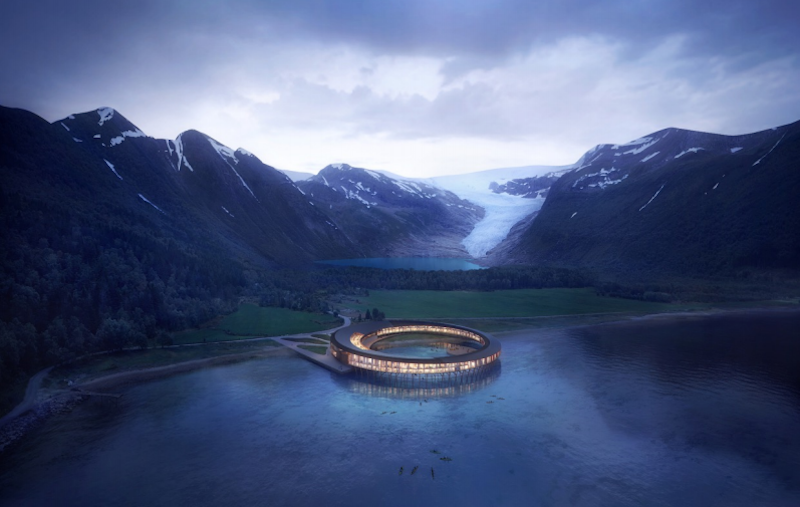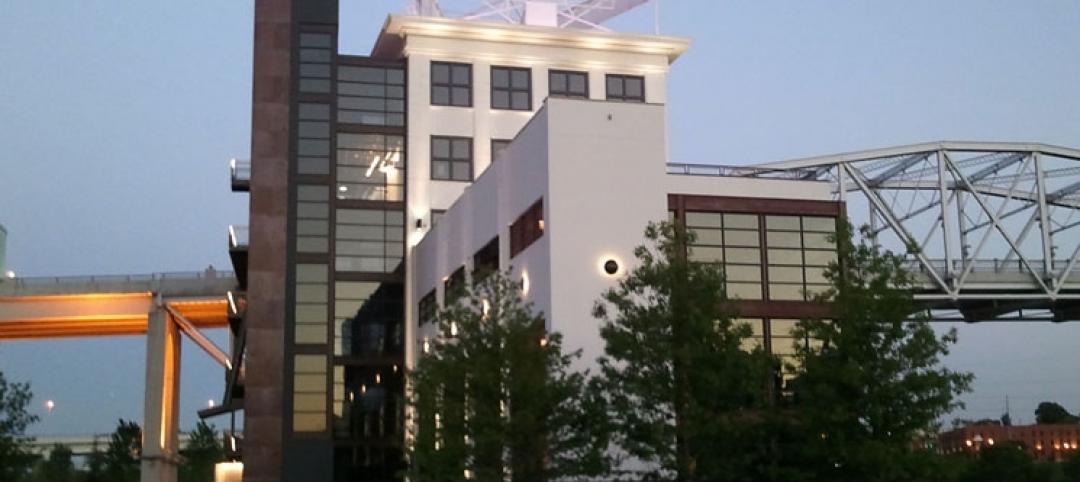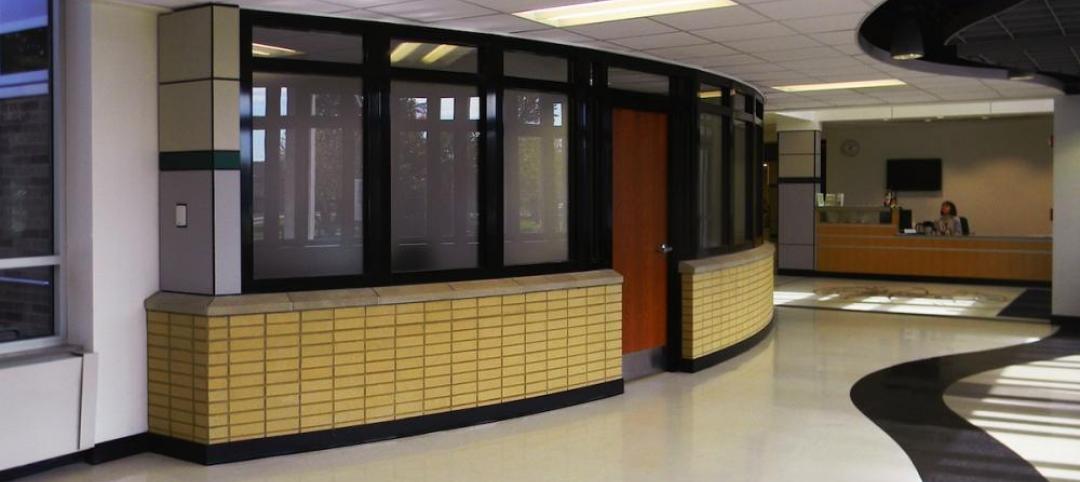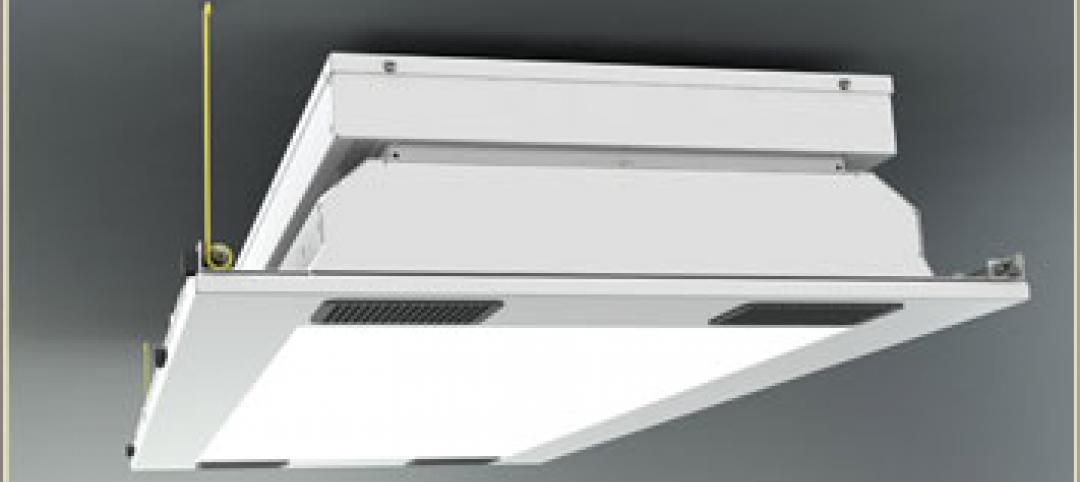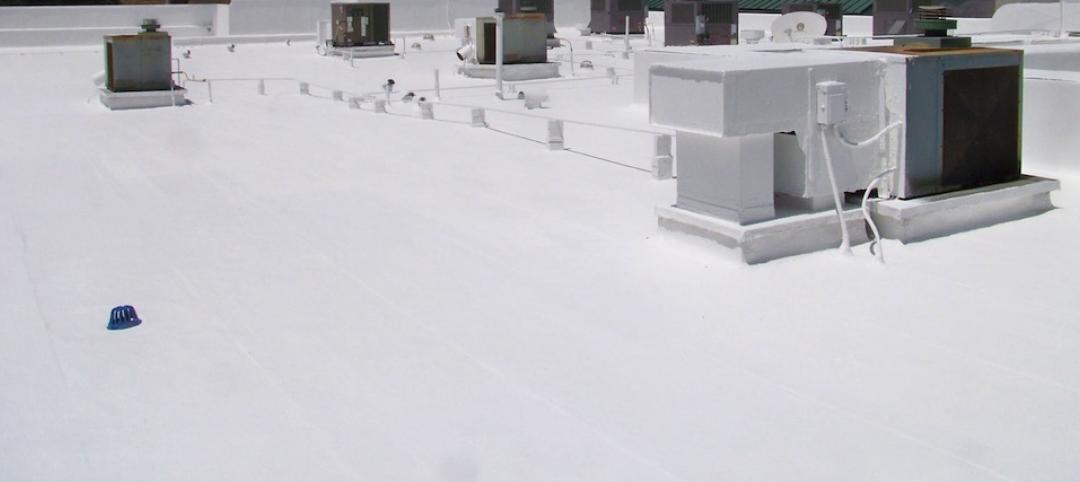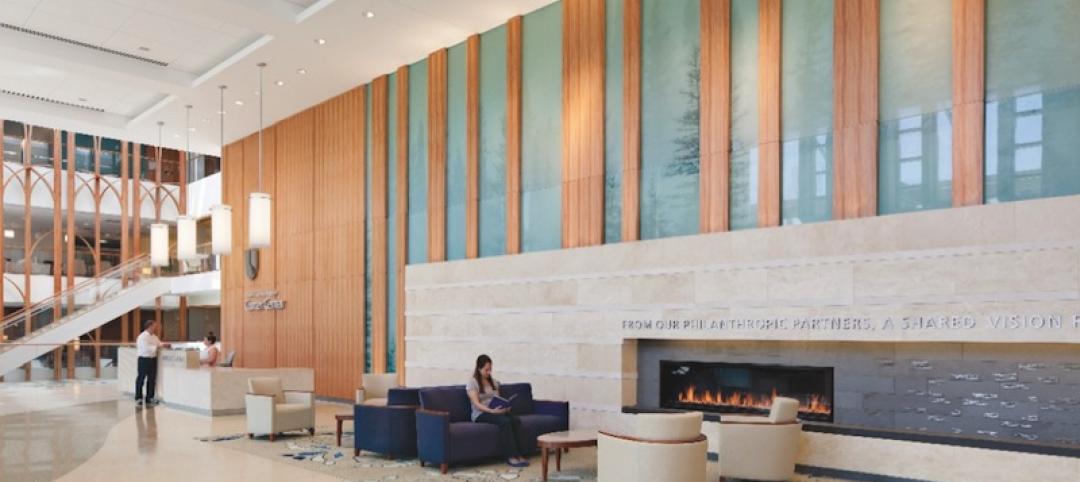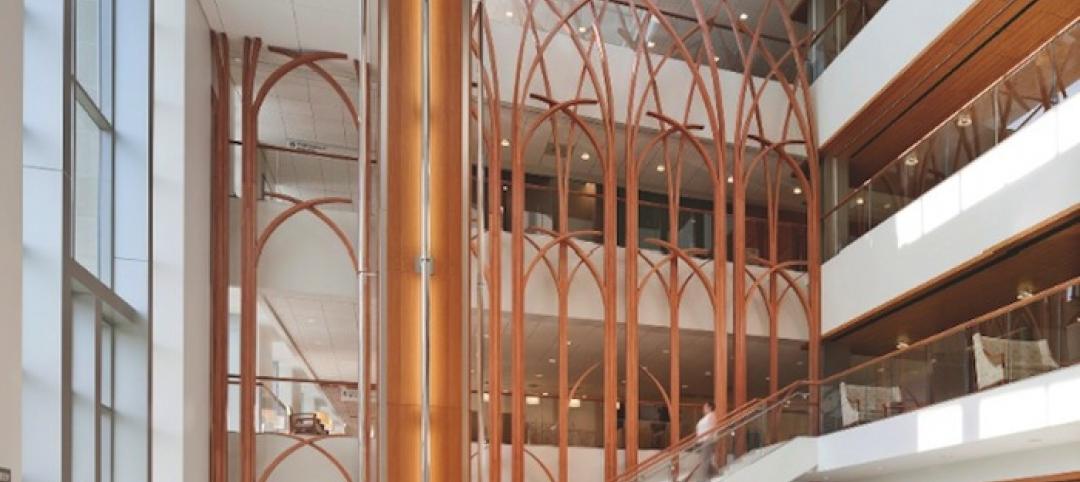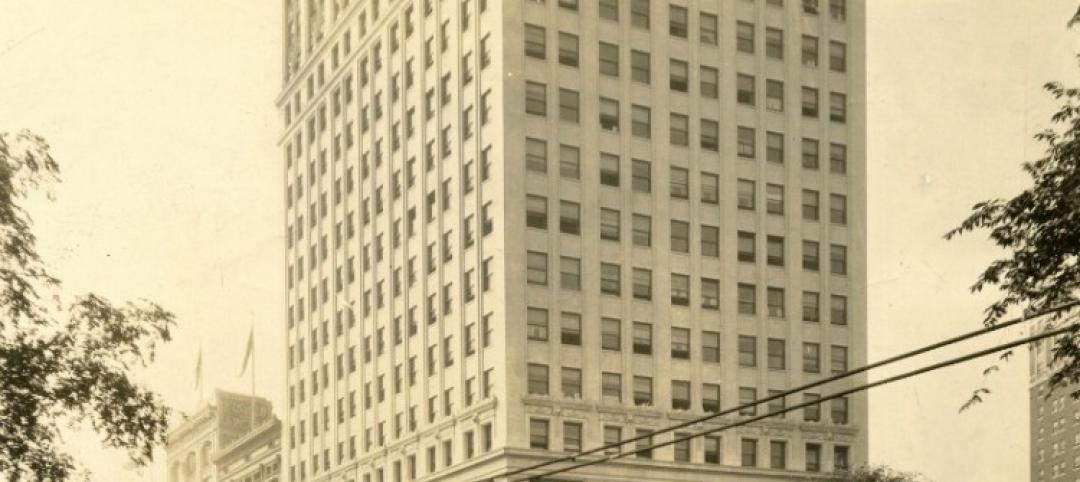Snøhetta, in collaboration with Arctic Adventure of Norway and the Powerhouse Collaboration*, is creating the first building in a northern climate to be built according to the energy positive Powerhouse standard. The building, a circular hotel dubbed “Svart,” will reduce its yearly energy consumption by approximately 85% compared to a traditional hotel and will also produce its own energy.
The hotel will be built in northern Norway near the Svartisen glacier. The hotel’s circular body will extend from the shoreline by the foot of the Almlifjellet Mountain and into the waters of the Holandsfjorden fjord. The design is inspired by a “fiskehjell” (an A-shaped wooden structure for drying fish) and a “rorbu” (a traditional type of seasonal house used by fisherman).
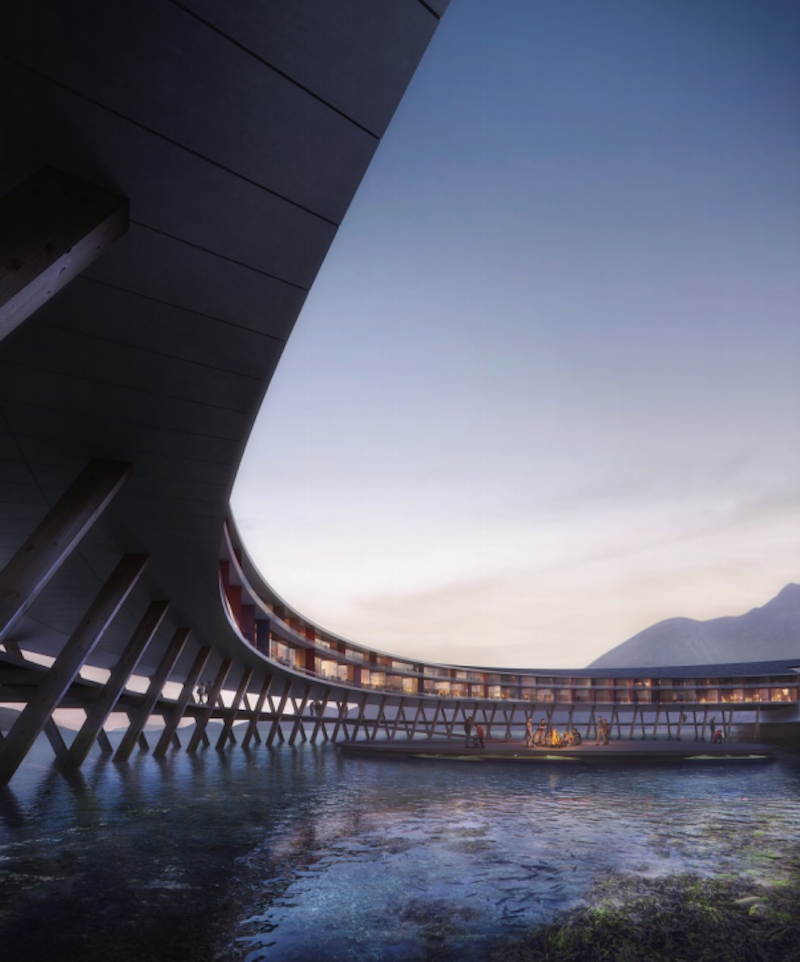 Courtesy Snøhetta
Courtesy Snøhetta
The rorbu inspiration can be seen in the hotel’s supporting structure, which is built from weather-resistant wooden poles that rise from several meters below the surface of the fjord. The poles ensure the building creates a minimal footprint in the environment. The poles also create a wooden boardwalk for visitors that can be used to store boats and kayaks, reducing the need for other storage structures.
Hotel rooms, restaurants, and terraces have been specifically places to maximize use of the sun’s energy throughout the day and the seasons. The hotel’s façades protect against insolation from the sun in the summer while the large windows allow for maximum insolation during the winter months. This eliminates the need for artificial cooling in the summer and drastically reduces the need for artificial heating in the winter. The roof also makes use of the sun’s energy as it is clad with Norwegian solar panels produced with clean hydro energy. Additionally, materials with low embodied energy will be used to reach the Powerhouse standard.
“Building in such a precious environment comes with some clear obligations in terms of preserving the natural beauty and the fauna and flora of the site,” says Kjetil Trædal Thorsen, Founding Partner, Snøhetta. “Building an energy positive and low-impact hotel is an essential factor to create a sustainable tourist destination respecting the unique features of the plot; the rare plant species, the clean waters and the blue ice of the Svartisen glacier.”
In order to be considered a Powerhouse plus house, over the course of a 60-day period a building must generate more renewable energy than the total amount of energy it would require to sustain daily operations and to build, produce materials, and demolish the building.
*Powerhouse is a collaboration between Snøhetta, Entra, Skanska, the ZERO Emission Resource Organization, and Asplan Viak for building plus houses.
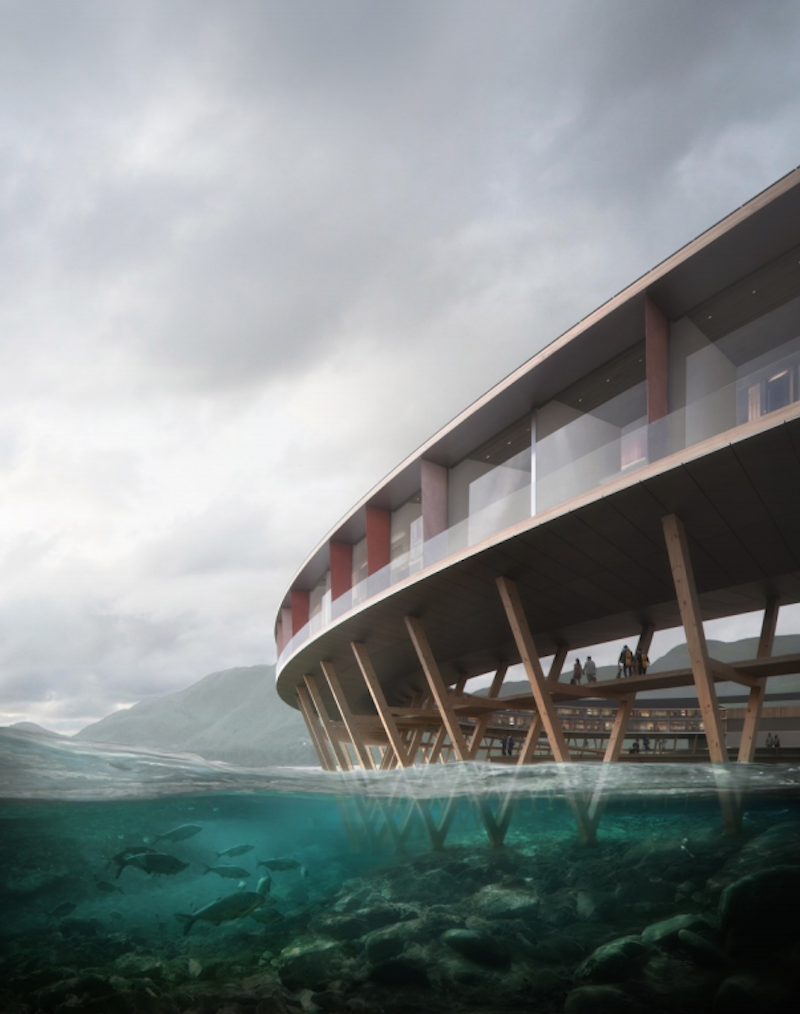 Courtesy Snøhetta
Courtesy Snøhetta
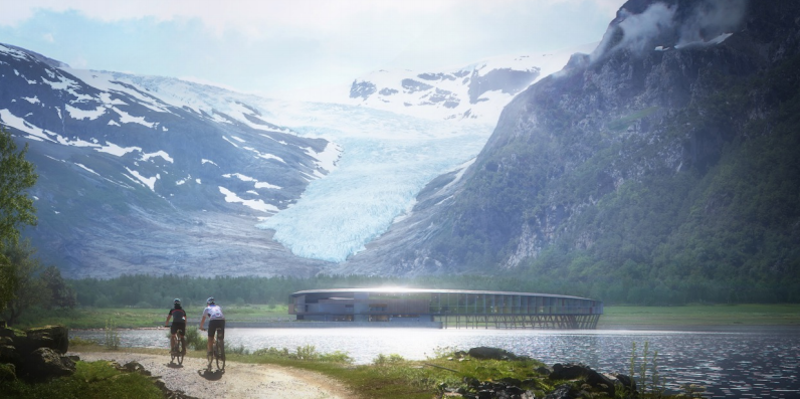 Courtesy Snøhetta
Courtesy Snøhetta
Related Stories
| May 7, 2013
Renovated bridge building will anchor Nashville riverfront master plan
Renovations to the former Nashville Bridge Company building were recently completed, including a newly-built modern wing. The facility has been re-dubbed The Bridge Building and now offers spaces for meetings, parties, weddings, and other events.
| Apr 30, 2013
Tips for designing with fire rated glass - AIA/CES course
Kate Steel of Steel Consulting Services offers tips and advice for choosing the correct code-compliant glazing product for every fire-rated application. This BD+C University class is worth 1.0 AIA LU/HSW.
| Apr 30, 2013
Healthcare lighting innovation: Overhead fixture uses UV to kill airborne pathogens
Designed specifically for hospitals, nursing homes, child care centers, and other healthcare facilities where infection control is a concern, the Arcalux Health Risk Management System (HRMS) is an energy-efficient lighting fixture that doubles as a germ-killing machine.
| Apr 24, 2013
North Carolina bill would ban green rating systems that put state lumber industry at disadvantage
North Carolina lawmakers have introduced state legislation that would restrict the use of national green building rating programs, including LEED, on public projects.
| Apr 24, 2013
Los Angeles may add cool roofs to its building code
Los Angeles Mayor Antonio Villaraigosa wants cool roofs added to the city’s building code. He is also asking the Department of Water and Power (LADWP) to create incentives that make it financially attractive for homeowners to install cool roofs.
| Apr 10, 2013
ASHRAE publishes second edition to HVAC manual for healthcare facilities
The American Society of Heating, Refrigerating and Air-Conditioning Engineers (ASHRAE) has published a second edition of its “HVAC Design Manual for Hospitals and Clinics.”
| Apr 2, 2013
6 lobby design tips
If you do hotels, schools, student unions, office buildings, performing arts centers, transportation facilities, or any structure with a lobby, here are six principles from healthcare lobby design that make for happier users—and more satisfied owners.
| Apr 2, 2013
4 hospital lobbies provide a healthy perspective
A carefully considered entry zone can put patients at ease while sending a powerful branding message for your healthcare client. Our experts show how to do it through four project case studies.
| Mar 29, 2013
Detroit's historic Whitney Building to be renovated for hotel, apartments
Detroit's David Whitney Building, a 19-story landmark erected in 1915, will be renovated for an Aloft hotel and apartments.
| Mar 29, 2013
Cuningham Group acquires NTD's healthcare practice, expands into key markets
The international design firm Cuningham Group Architecture, Inc. has announced that NTD Healthcare has the joined the company in a strategic expansion. A practice of NTD Architecture, NTD Healthcare joins Cuningham Group with three principals: Wayne Hunter, AIA, NCARB, ACHA and Phillip T. Soule, III, AIA, ACHA in San Diego, along with Maha Abou-Haidar, AIA in Phoenix.


